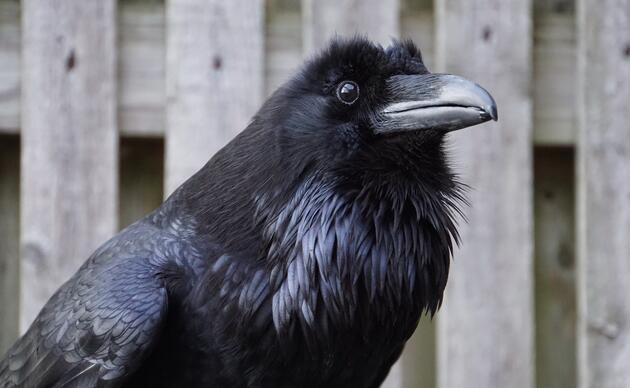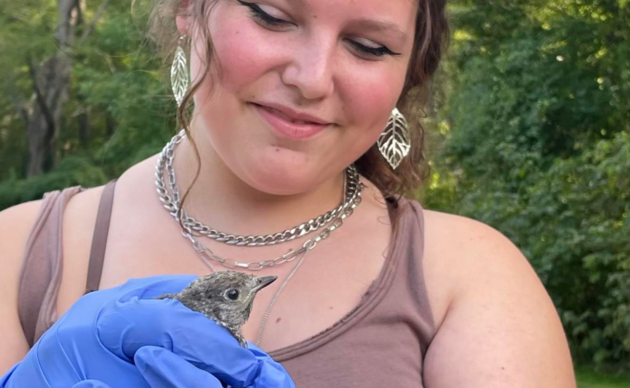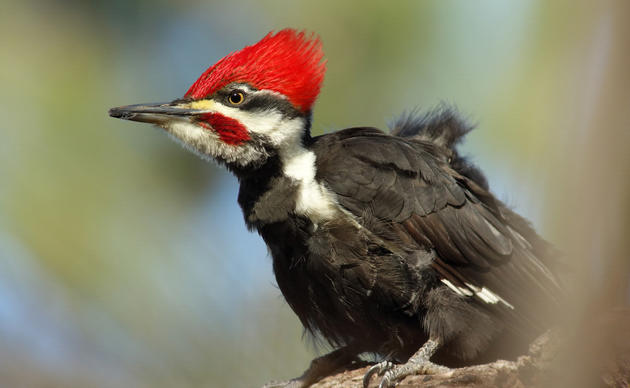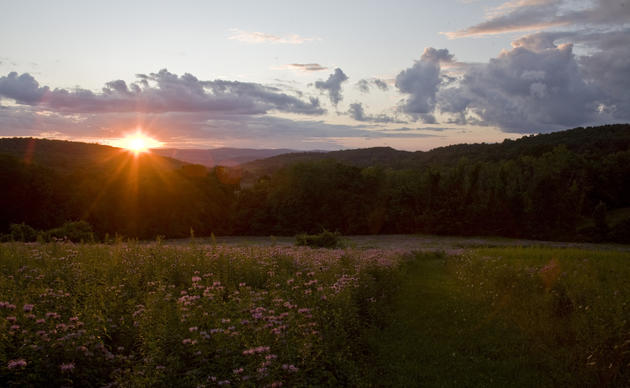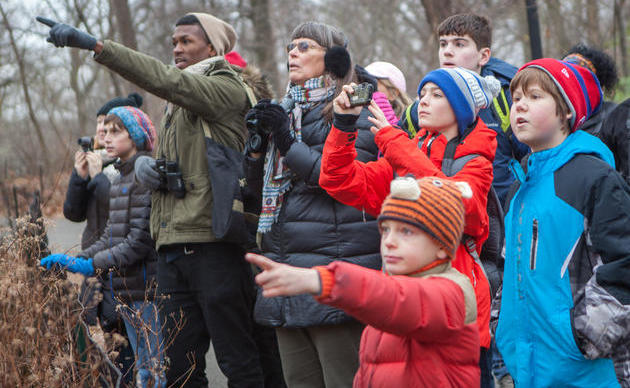Great Horned Owl: Ruby
Brought to Sharon Audubon Center: September 22, 2013
Injury: Coracoid injury, partial left wing
History: Ruby came to the Sharon Audubon Center through the wildlife rehabilitation program after being struck by a car. She suffered from a fractured coracoid (a tiny support bone) and severely damaged feathers. Unfortunately, her injuries left her unable to use her left wing properly and required a partial amputation by veterinarians. She now resides in a large outside aviary with another Great Horned Owl named Baxter. Ruby is currently training to be an education program bird!
Great Horned Owl (Bubo virginianus)
Average Height: 18 - 26 inches
Average Weight: 2.5 - 3.5 lbs
Wingspan: 4 - 5 feet
Life Span: 15 - 20 years
Description: The Great Horned Owl is a large brown owl with "ear tufts," which are mistakenly thought to be the bird's ears. Its feathers are brown with heavy barring on the underparts. A white throat bib, yellow eyes, and a reddish-brown facial disk are distinctive features.
Call: Both sexes give a series of low hoots, which sound like, "Who's awake? Me too!" The males often give 4 - 5 hoots, "Hoo-hoo-oo, hoo, hoo." The female's call is lower in pitch and often gives a series of 6 - 8 hoots, "Hoo, hoo-hoo-hoo, hoo-oo, hoo-oo."
Range: Great Horns reside throughout the United States and most of Canada. It is a very common resident of Connecticut and New York.
Habitat: Great Horned Owls live in coniferous or deciduous forests, open woodlands, swamps, urban parks, and semi-desert areas.
Diet: The diet of Great Horned Owls includes rabbits, rodents, skunks, cats, frogs, snakes, and smaller birds, including owls. Great Horns are at the top of the food chain, so they have many preys, but very few predators. Man is the biggest predator of Great Horned Owls.
How you can help, right now
Learn & Explore
Where birds thrive, people prosper. Help us transform local communities into places where birds flourish. Learn what you can do to nurture wildlife, nature, and conservation in Connecticut.
Support Our Work
Through land stewardship, science, education, and advocacy, we work to preserve habitat and protect bird species that are of state, national, and global concern. Your gift makes a difference.
Join Our Family
When you become a member of Sharon Audubon Center, you are protecting critical woodlands and a natural heritage for generations to come. Help us do great things.

